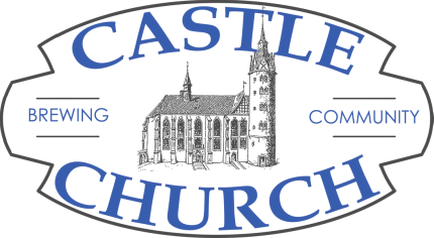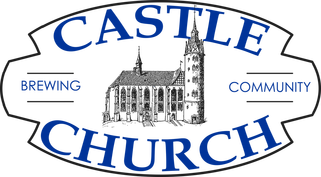|
Jared Witt l October 27, 2016 If you actually did all of the English homework from high school on up (and you know who you are, if you didn’t), the chances are that you’ve read several books that were first penned in a Parisian café. All the other romantic hearts out there will understand, it is a breathtaking experience, walking trough the alleyways of the Latin Quarter and knowing that generations of luminaries from Voltaire to Oscar Wilde sipped, smoked, and scribbled their classics in these very spots. Geniuses are born all over the world. Most die in obscurity. It can’t be an accident that such a confluence of enduring ideas came from a few square blocks along the Seine nor that so many Americans, Brits and other non-natives felt that this was the appropriate place to launch their writing careers. Jared Witt l October 20, 2016 I was about 20 when I really started grappling with what it means to have a thoughtful, adult Christian faith. Around that time, I bought what has to be one of the most unhelpful books ever written: the Handbook of Christian Apologetics. If I’d known then what I know now, I would have been wary just of the title. Traditionally, Christian theologians have always acknowledged that there is an aspect of our faith which can be communicated in rational terms, what they called the apologia, and an aspect which doesn’t operate at the cognitive level but can only be lived into as a mystery, the kerygma. So in early Christian history, an apologia discussion, at its best, was mostly a discussion about language and symbols and how the Good News of Jesus’ new peaceful reign could be humbly shared with another culture, which might think in different categories and resonate with different images than one’s own. With the rise of evangelical fundamentalism in the United States, the bastardized term “apologetics” became less about humble translation and more about the macho game of “providing a defense” for the faith, usually with a red face and a raised voice. It became less about love for the other, who could use some genuinely good news in her life, and more about proving that I am right, and she is an infidel. Jared Witt l October 13, 2016 This isn’t a blog about the election. I’m sure everyone is sick of hearing about that. This is actually a blog about being sick of hearing about the election…which puts one in the ironic position of having to write about the election. Many writers far more informed than I have already traced the history of how the length of presidential campaigns swelled to today’s obscene levels, but the long and short is simple enough. In the early days, our government was much less democratic and much more of a good-ol’ boys club than most of us were taught in elementary school, with congress essentially handing the populace candidates from within their very aristocratic ranks a few weeks before the election. By the mid-19th century the process had become much more party driven but also more resource intensive. And, of course, a party's process can be even more closed-door than congress. Jared Witt l October 6, 2016 That familiar tug you felt in your heart when you saw the hurricane update from Haiti? That turmoil in your gut? That restlessness to get up and do something? That’s good. Don’t lose that. It means you’re human. But don’t just do something. Stand there. There will be plenty of time to act, I promise. Let's give it a minute and think this through, first. It’s one thing to feel that urgency in your soul. That rush of compassion. Those are holy feelings. BUT it’s another thing to channel those feelings in intelligent ways. The heart is great at motivating us to action. But it doesn’t direct that action very well. We need heads for that. |
Mashing in.On how Castle Church is stirring up a movement from a brewery in Florida. Archives
July 2018
|
Curated selection
- UK Online Casinos Not On Gamstop
- UK Online Casinos Not On Gamstop
- Casino Sites Not On Gamstop
- Best Non Gamstop Casinos UK 2025
- Casino Sites Not On Gamstop
- UK Online Casinos Not On Gamstop
- Non Gamstop Casinos UK
- Non Gamstop Casino Sites UK
- UK Casino Not On Gamstop
- Best Non Gamstop Casinos
- Online Casinos
- UK Casino Not On Gamstop
- Non Gamstop Casino
- Gambling Sites Not On Gamstop
- Migliore Casino Non Aams
- List Of UK Casino Sites
- UK Casinos Not On Gamstop
- Gambling Sites Not On Gamstop
- Best Non Gamstop Casinos
- Casino Not On Gamstop
- Betting Sites
- Non Aams Casino
- Migliori Siti Casino Non Aams
- Non Gamstop Casino
- Casino En Ligne
- Bitcoin Casinos
- Meilleur Site Casino En Ligne Belgique
- Meilleur Casino En Ligne Avis
- Site De Paris Sportif Bonus
- Paris Sportif Ufc Mma
- Siti Di Casino Online 2026
- Meilleur Casino En Ligne
- Casino En Ligne
- 50 Free Spin Senza Deposito
- Migliori Casino Online
- Meilleur Casino En Ligne France
- Nuovi Casino Non Aams
- Nouveau Casino En Ligne France
- Migliori Siti Casino Online
- Trusted Online Casino Malaysia

 RSS Feed
RSS Feed




